The last Jungles
An unforgettable, beautiful and sad story about the last jungles in North Sumatra.
During my last surfing trip to North Sumatra, I have decided to spend a couple of nights in Medan, the third biggest city of Indonesia. I used it as a base to explore the Sumatran Rainforest of Gunung Leuser National Park in Bukit Lawang and try to spot a few to the remaining wild orang-utans.
I always read about how the palm oil plantations are taking over the jungle but approaching the national park, the scene that I saw in front of me was very though. Due to this one-species-only plantation, the rainforest of North Sumatra has been devastated and it’s huge biodiversity and ecosystem are getting destroyed.
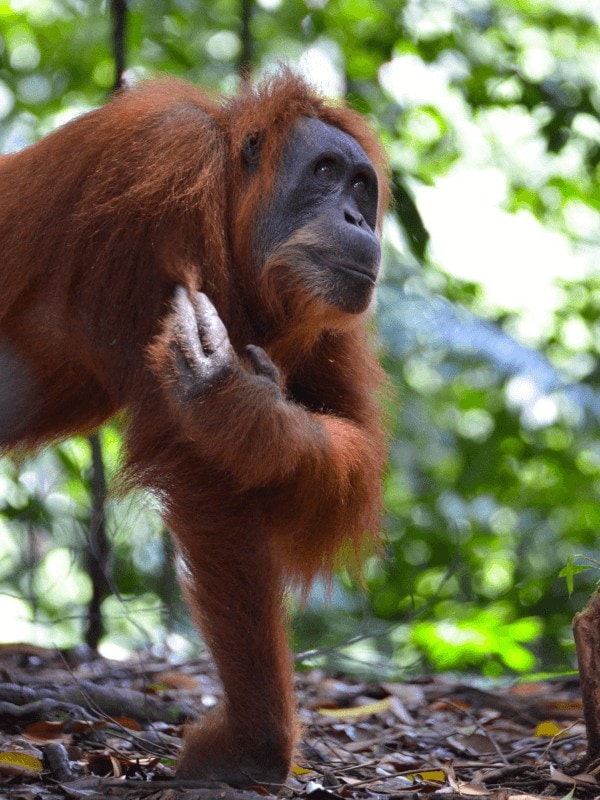
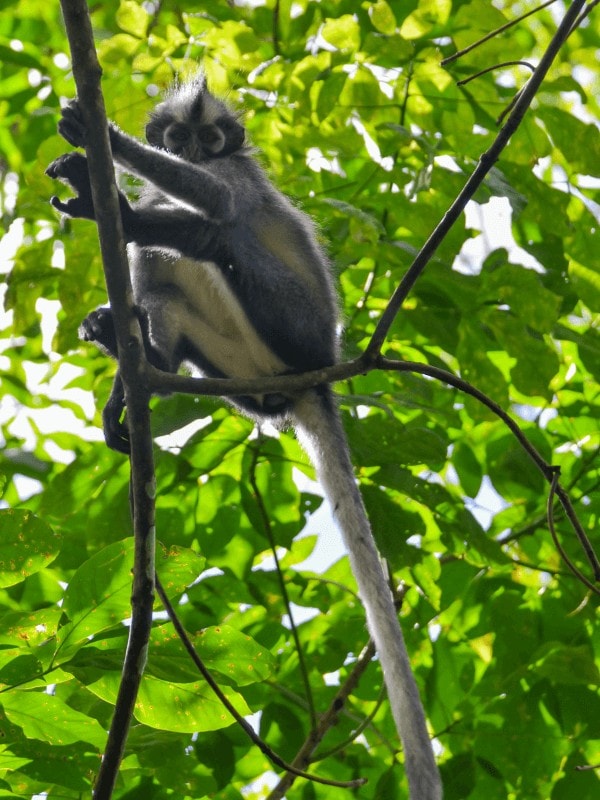
Rainforests:
Covering only 6% of the Earth’s surface, tropical rainforests contain at least half of all species of flora and fauna. The Indonesian island of Sumatra holds some of the richest and most diverse tropical forests on the planet. Here there are more than 15,000 known plants, with many more species yet to be discovered. Orangutans, elephants, tigers and rhinos coexist in the wild. The jungle is home to more than 200 mammal and 500 bird species, many of which cannot be found anywhere else in the world!
Rainforests are also the world’s pharmacies: 25% of all modern medicines are derived from their flora! Of all the plants deemed useful in treating cancer, 70 % can be found only in rainforests.
The role of jungles in the world’s ecosystem balance is huge: not only do they regulate global temperatures, but they also stabilise local climates and limit the earth’s reflectivity, which in turn stabilises ocean currents, wind patterns and rainfall. They are also our main source of life: those plants take care of transforming the CO2 into oxygen!
Deforestation:
Deforestation has a big effect on global warming. Trees have a big role in absorbing carbon dioxide, through photosynthesis. When deforestation occurs, many trees are cut off or burned, resulting in releasing of carbon-dioxide from the plants, plus there will be fewer plants to absorb carbon dioxide from the atmosphere. This makes the weather is more humid and warm.
The increasing of temperature melts the ice in earth poles, increasing sea level and rainfall. Increased rainfall, with fewer trees to absorb the water will result in flood. This will make a vicious circle which can destroy the whole life.
And it’s not all about palm oil. The area is being damaged also by pulp production, timber, rubber and minerals, as well as illegal logging and illegal wildlife trade.
Deforestation is indeed the primary threat to the orang-utan, a species of great ape known for its keen intelligence (they are our closest relatives) and the fact that it’s the largest animal to live primarily in trees. Given that it’s rare for adult orang-utans, supremely adapted to life in trees, to ever touch the ground, it’s no wonder that deforestation is the main driver of the species’ population decline. Orang-utans are also killed for the illegal wildlife trade. Poachers kill the mothers and then sell their babies as pets.
According to the WWF, there may be more (pet) orang-utans per square-mile in Taipei, Taiwan than in the wild.
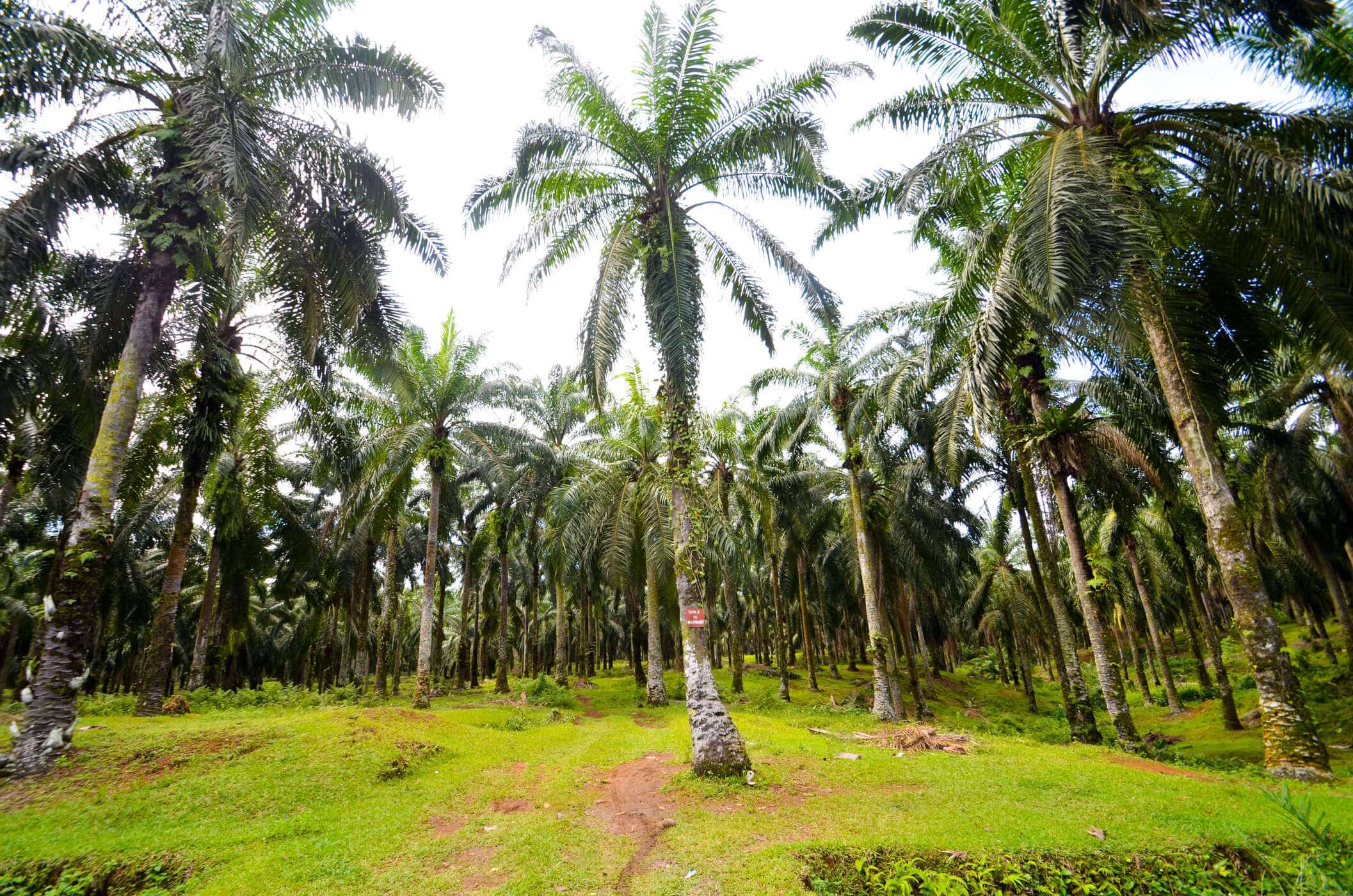
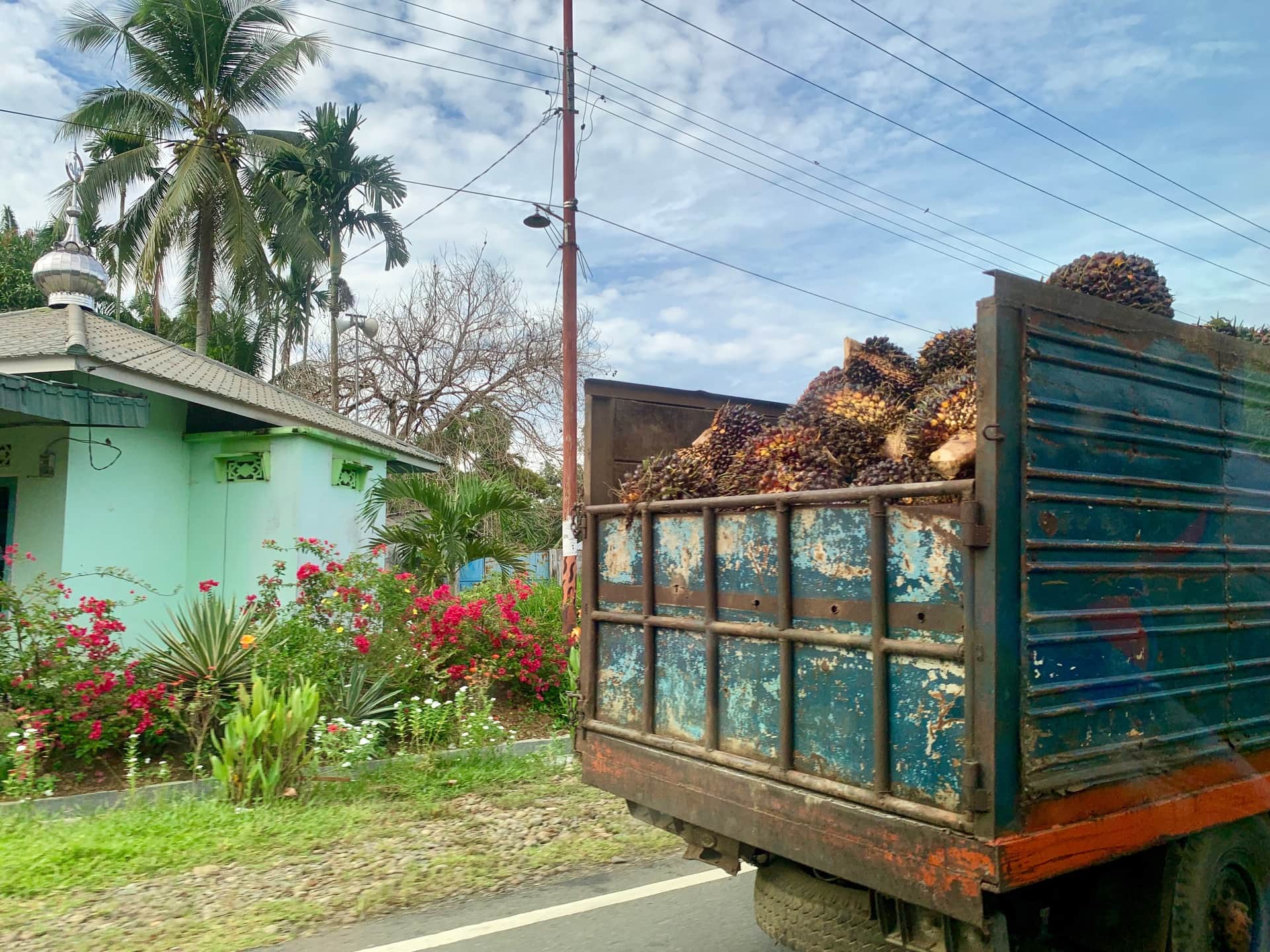
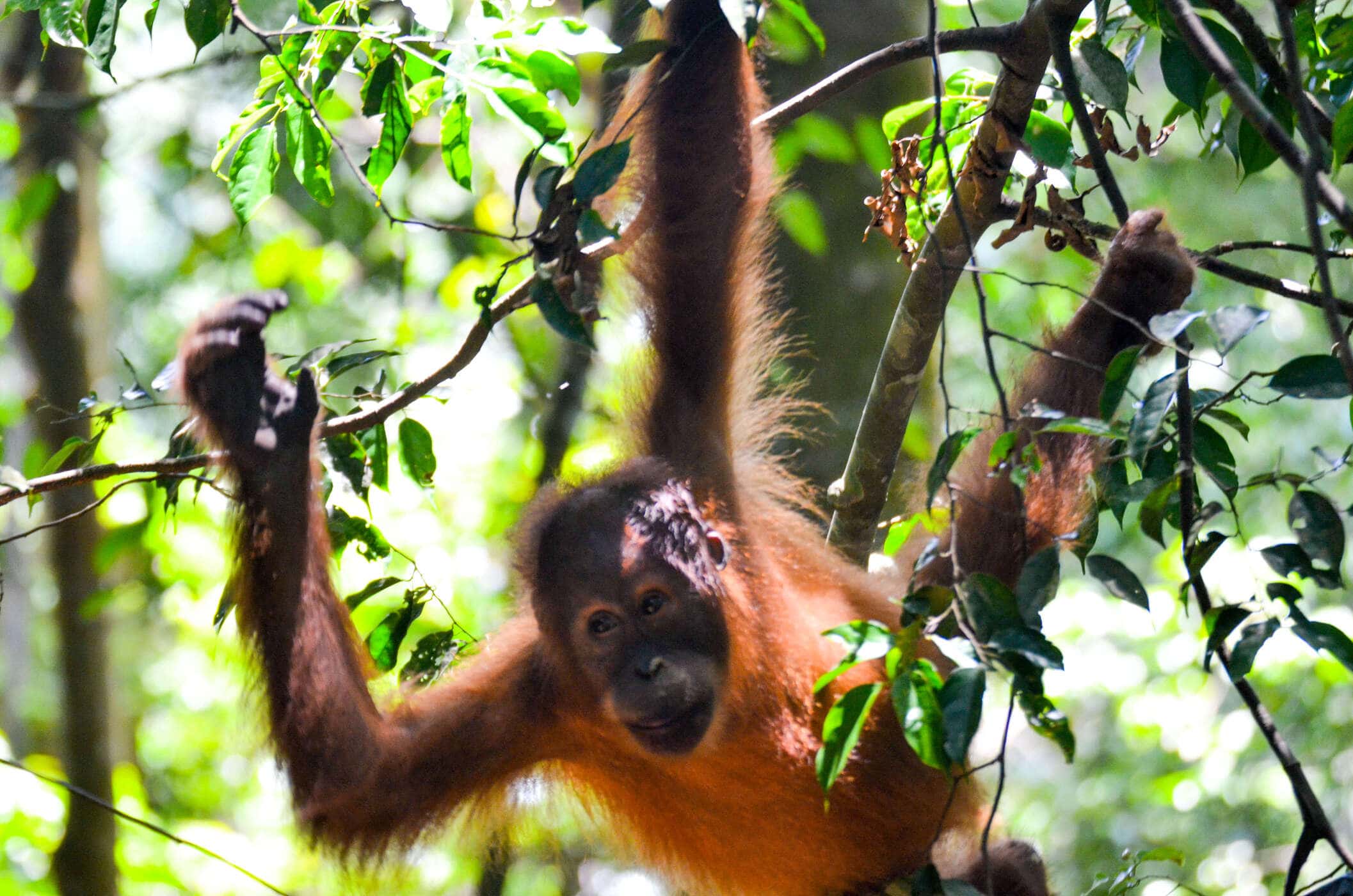
Facts and numbers:
- Rainforests represent 7% of the world emerged lands.
- Indonesia is home to approximately 3% of the world’s forests
- Deforestation in Indonesia represents over a third of the total global carbon emissions from deforestation and land degradation
- Nowadays we have already lost 80% of the Indonesian Jungles
- We are keeping loosing jungle at a rate of 6.2 Million acres per year.
- There are only 7 thousand orang-utans left North Sumatra.
- Deforestation in big scales decreases at least 100 animals every day worldwide.
What we can do:
Would boycotting palm oil be a solution?
If the international market for palm oil disappears, corporations and smallholder farmers alike could switch to producing an alternative crop. Oil palms are the most productive oil crop in the world, which means that a switch to another type of edible vegetable oil (such as soybean oil) would require up to ten times as much land to produce the same yield. This would lead to more deforestation, not less. Boycotting palm oil could also drive the price of the oil down, making it more attractive for biofuels and livestock feed.
What we need to do is ensure that palm oil is cultivated in the least damaging way possible.
Palm oil trees do not need to be grown at the expense of forests. Instead, we need to demand an end to deforestation to ensure a safe habitat for orang-utans and all the other species that also rely on the rainforest.
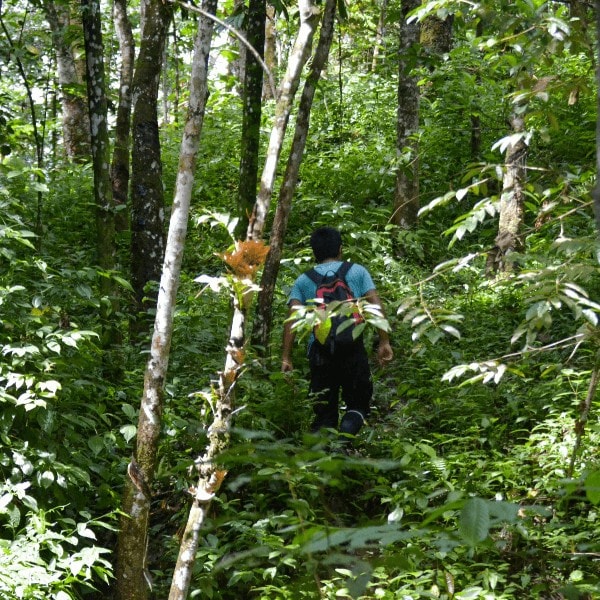
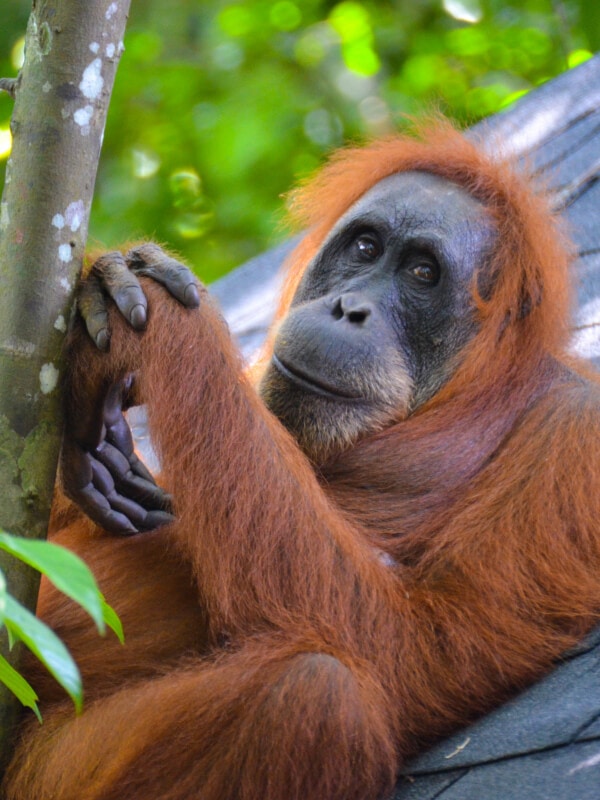
The situation in Sumatra is desperate, but it is not hopeless!
Sumatran Orangutan Society is working to break the link between development and deforestation and is trying to find ways for the locals to improve their income without chopping down rainforest trees.
We need palm oil producers to stop converting forests and peatlands to palm oil plantations. Instead, they could use degraded land or increase yields on existing plantations. They also need to be transparent about their production methods and avoid labour, land and human rights violations
As a consumer, you can research which retailers and manufacturers are committed to removing deforestation from their products, join social media campaigns to drive the industry in the right direction, and support conservation organisations who are working to break the link between palm oil and deforestation.
Recommended to watch:
Episode 3 of Netflix Serie “Our Planet” provides really interesting info about the jungles of the world, including the Sumatran one. Let it make you fall in love with this ecosystem.
Wanna have the chance to see wild orang-utans?
Are you interested in trekking in the jungle and have the opportunity to see with your eyes one of the last remaining pieces of Heaven?
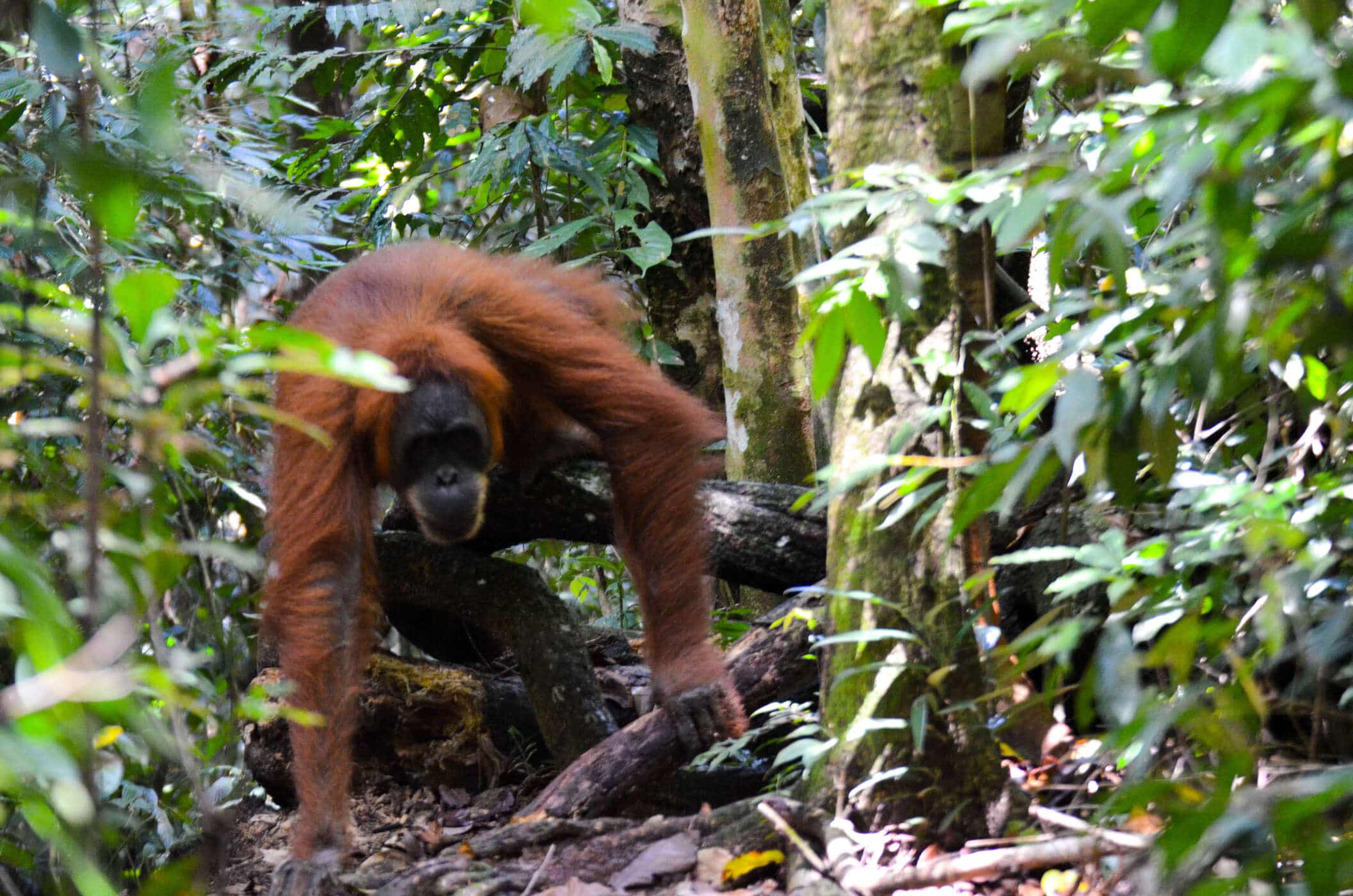
Receive Updates & promotions
